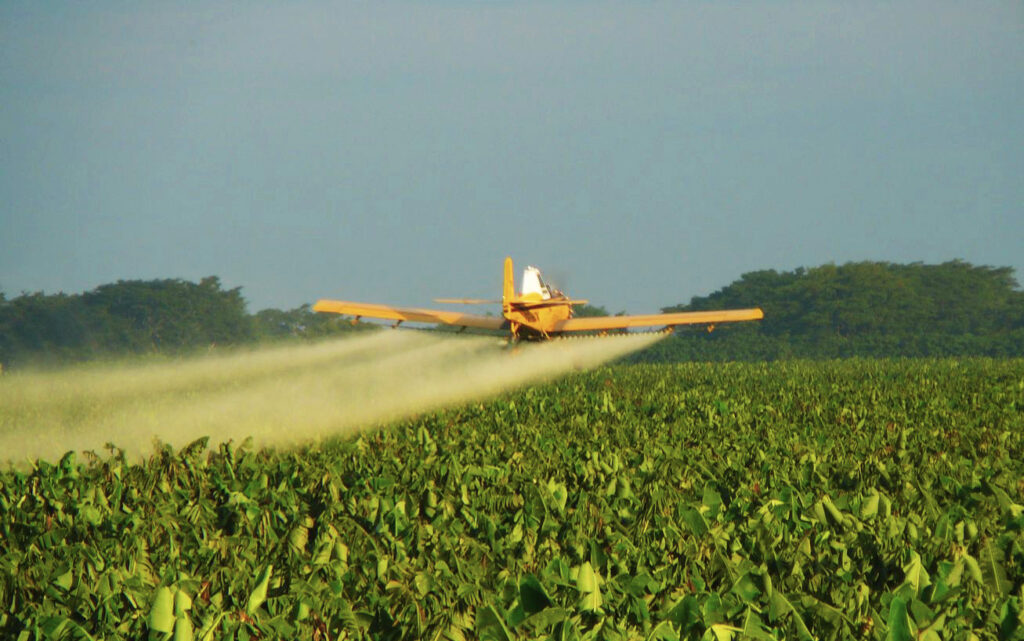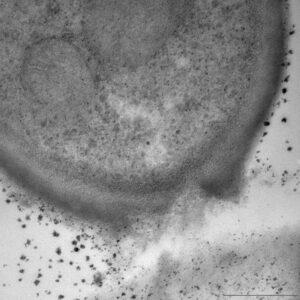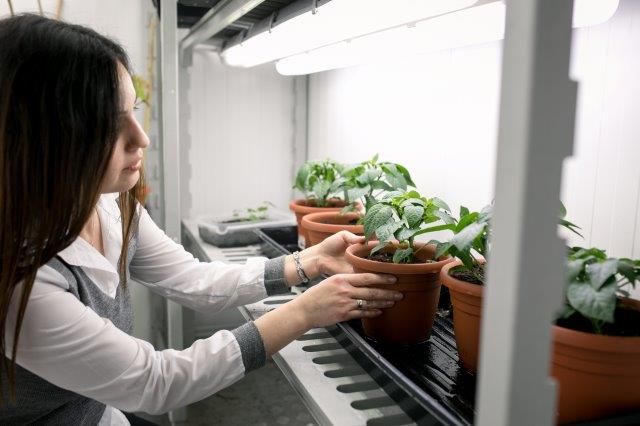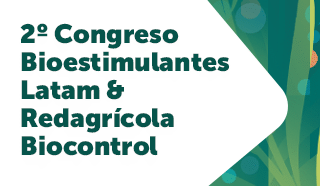01/Apr/2022
#04
SUBSCRIBE TO OUR NEWSLETTER
Suscríbete a nuestro newsletter
Last issue articles
- Biome: the space gaining protagonism in biological strategies for crops
- The export dynamics driving the Mexican biologicals market
- New model developed to evaluate effects of two or more biostimulants combined in a single crop
- Dr. Wagner Bettiol and the biocontrol market in Brazil
- Las propiedades que hacen del Trichoderma un socio clave en la búsqueda de mejores desempeños en los cultivos
- Changes in the new regulation on fertilizers and biostimulants in Chile
- Innovak Global, the expansion of root specialists
Market movers
- Renewable-based nitrogen fertilizer firm raises US$ 20 million in investment round
- Bayer and Ginkgo Bioworks close agreement to strengthen open innovation platform for agricultural biologics
- Argentinean firm Puna Bio: Millions raised to study superbacteria for agricultural use
- Corteva Agriscience signed an agreement to acquire leading biologics company Symborg
- Brazilian study uncovers ants' potential in crop protection
- Huber acquires specialty plant nutrition producer Biolchim
- UPL announces agreement to distribute bioprotector based on orange oil
- ICL and Lavie Bio start strategic collaboration to develop new biostimulants
- Hortitool and Green Smile to organize the Morocco Berry Conference 2022

Aircraft spraying a farm with STK's Regev hybrid fungicide.
The Hybrid Solution That Facilitates The Transition Towards Biologicals In Crops
The Israeli firm STK Bio-AG Technologies targets Latin America with a product that combines active ingredients of a chemical nature with botanicals. By doing so, they point out, they have managed to reduce the barriers that prevent farmers from trying non-conventional inputs.
F. Aldunate M.
He and his company have seen this firsthand. STK launched a biofungicide onto the market a few years ago whose active ingredient was tea tree oil. A completely natural product that is marketed under the Timorex Gold or Timorex Act brands, and which is registered for use in much of Latin America. However, he says, farmers in the region have been reluctant to try the new products, which they usually see as more expensive and less effective.
“When you have a product that is only biologic, you have to be very specific about how to use it, what disease to use it for, and when to use it,” says Nativ. "You have to be very technical."
“When you go to a farmer and tell him that you are purely organic, his first impression is that you are expensive and your efficiency is low. And when you go with a chemical, usually the perspective will be that you're cheap and work well, but you have a lot of waste issues"
Yair Nativ, STK Technologies.
That began to change when they launched Regev in 2017, a hybrid solution that combines their tea tree extract with difenoconazole, a chemical traditionally used to prevent a wide group of pathogens from completing their infection processes in plants. This hybrid product comes in two formulas: one with two biological parts for one chemical, and another with two equal parts.
Although he does not give sales figures, the Israeli points out that the hybrid solution has allowed an important growth in the company's earnings, because it is more suitable for the transition.
“When you go to a farmer and tell him that you are purely organic, his first impression is that you are expensive and your efficiency is low,” he says. "And when you go with a chemical, usually the perspective will be that you're cheap and work well, but you have a lot of waste issues."
Focusing on exports
Although it cannot be considered biological, the hybrid product has the advantages of both modes of action: simplicity in its use, high effectiveness and low residue levels, a key factor for exporting to highly regulated markets, such as in Europe.
Nativ says that Regev is precisely meant for export agriculture: while it's not yet licensed for use in European crops ("an authorization process that takes too long," he says), its low levels of chemical residues are below the maximum required by the regulations in the old continent (the MLR, for Maximum Residue Levels).

Photomicroscopy of the rupture of diseased cells by the hybrid fungicide REGEV
Regev has a wide range of uses in crops, from vines to leafy vegetables and extensive crops such as soybeans and sugar beets. Due to its unique biological action, it can gain ground as a resistance management tool for a wide range of growers.
It works like a conventional product: it is stored and applied in the same way, which makes handling easier for farmers.
Latin American origin
The firm, which also has important business in the United States, has a special relationship with Latin America. In fact, it began its business in 1994 marketing chemical products made in China to Latin America, under the name of Stockton. However, the company's founder, Peter Tirosh, contacted a laboratory located in the Golan Heights, in northern Israel, which was experimenting with a botanical solution: a fungicide made from an extract of tea tree. The story tells itself from then on: they bought the startup and shortly after abandoned the commercialization of all chemical products to focus on biologicals.
In 2012 they launched Timorex Gold, the first tea tree oil based product, and in 2017 they launched their first Regev hybrid. In 2019 and 2020 they signed distribution agreements with firms such as Syngenta, Adama, with whom they operate in Latin America, and the Iberian Ascenza.

STK's hybrid formulation combines a biofungicide created from tea tree and the chemical difenoconazole.
One of the decisions they had to make when launching Regev was what chemical to formulate it with. Difenoconazole was chosen because it is "the one with the greatest chances of maintaining its use record in the European Union," says Nativ. "We believe that difenoconazole is going to be the last member of the conazole family to remain on the market."
The company, which in 2015 received a US$90 million investment from a Chinese investment firm in exchange for 50% ownership, is in the process of launching new products, both pure organics as well as their hybrid formulations. "We think that in 20 or 30 years, the market is going to be totally dominated by biological products," he says. "But it's going to take time, and until that happens, in the next 20-30 years, hybrids are a perfect solution."
Last issue articles
- Biome: the space gaining protagonism in biological strategies for crops
- The export dynamics driving the Mexican biologicals market
- New model developed to evaluate effects of two or more biostimulants combined in a single crop
- Dr. Wagner Bettiol and the biocontrol market in Brazil
- Las propiedades que hacen del Trichoderma un socio clave en la búsqueda de mejores desempeños en los cultivos
- Changes in the new regulation on fertilizers and biostimulants in Chile
- nnovak Global, la expansión de los especialistas en la raíz
Market movers
- Argentinean firm Puna Bio: Millions raised to study superbacteria for agricultural use
- Corteva Agriscience signed an agreement to acquire leading biologics company Symborg
- Brazilian study uncovers ants' potential in crop protection
- Huber acquires specialty plant nutrition producer Biolchim
- UPL announces agreement to distribute bioprotector based on orange oil
- ICL and Lavie Bio start strategic collaboration to develop new biostimulants
- Hortitool and Green Smile to organize the Morocco Berry Conference 2022
About us
Biologicals Latam es una revista digital trimestral de Redagrícola que informa de manera especializada sobre la intensa actividad que se está desarrollando en el espacio de los bioinsumos para la producción agrícola. Esta publicación es complemento del Curso Online de Bioestimulantes y Biocontrol y las conferencias que este grupo de medios realiza en torno al tema.





